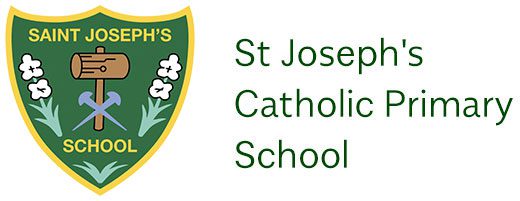PE at St Joseph’s
Physical education is a statutory requirement of the National Curriculum and an essential contributor to the development of the whole child. Through a high quality physical education programme pupils develop physical competence and confidence and are given opportunities to be physically educated and become physically literate. Through a combination of entitlement and choice of activity, the physical education provision will contribute to the personal development, health and well-being, enjoyment, success and achievement of all pupils across the whole curriculum and beyond.
Physical education provides pupils with the opportunity to be creative, competitive and face up to different challenges as individuals and in groups and teams. It promotes positive attitudes towards a healthy and active lifestyle. Pupils learn how to think in different ways and make decisions in response to creative, competitive and challenging activities. They learn how to reflect on their performance, plan, perform and evaluate actions, ideas and performances to improve the quality of their work.
Physical education helps pupils develop personally and socially. They work as individuals, in groups and teams, developing concepts of fairness and of personal and social responsibility. They take on different roles and responsibilities, including leadership, officiating and coaching.
Through high quality physical education pupils discover their aptitudes, abilities and preferences and make informed choices about how to get involved in lifelong physical activity.
St Joseph’s recognises the value of Physical Education. We fully aim:
- To provide a broad and balanced curriculum that satisfies the needs of the current National Curriculum and provide pupils with appropriate challenge with acceptable risk.
- To enable children to develop skills and processes, through progressive stages of learning, they can use, develop and link to complete a number of activities and sports enabling them to fulfil their potential.
- To educate pupils about, and involve them, in the process of risk management so that they understand their responsibility in this and how to keep themselves safe.
- To establish good habits and awareness of personal hygiene.
- To develop competence to excel in a broad range of physical activities and select and use skills, tactics and compositional ideas within these.
- To develop a sense of team building and cooperation, when working with others and to make P.E. an enjoyable and accessible activity for all using imaginative ideas to express and communicate their ideas.
- To give all children the opportunity to be physically active for sustained periods of time.
- To develop knowledge and understanding of the importance of health, both physical and mental, and fitness for life.
- To provide all children with the opportunities to engage in competitive and co-operative sports and activities.
- To develop pupils’ stamina, flexibility, strength and the mental capacity (determination and resilience) to keep going.
- To develop an environment where they have the confidence to get involved in PE and sport and are committed to make it a central part of their lives both in and out of school.
- To provide an out of school hours programme which extends and enriches curriculum provision and provides opportunity for activities to enable pupils to make sufficient progress to access curriculum sessions with greater success.
- To establish community links and pathways through sports clubs and school sports partnerships for pupils to engage in life long participation.
- To ensure that by the end of Year 6, children can swim competently, confidently and proficiently over a distance of at least 25 metres.
- To ensure that by the end of Year 6, children can use a range of strokes effectively.
- To ensure that by the end of Year 6, children can perform safe self-rescue in different water-based situations.





